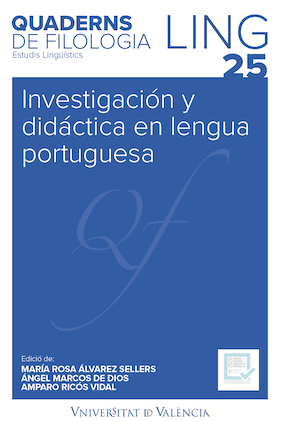Ageing - A Corpus-Driven Study of Newspaper Texts in German and Portuguese
DOI:
https://doi.org/10.7203/qf.0.19068Keywords:
senior citizens, corpora analysis, journalistic texts, semantic field, German-Portuguese. Abstract
Abstract
The designations employed for senior citizens, as well as to describe the universe around them, reflect society’s perception of these issues. This language gives rise to critical reflection on phenomena of linguistic taboos and euphemisms, which are particularly interesting to analyse when studying and contrasting languages. The intuitive perception of the language used in the media lacks, however, tools of analysis that allow us to have a more accurate knowledge of the designations employed and their contexts. To this end, corpora analysis is a methodology which allows a more precise identification and description of the linguistic phenomena under analysis, both in quantitative and qualitative terms. The study presented here is therefore part of a linguistic and contrastive perspective. The research focuses on the lexical-semantic field of the third age, based on corpora texts from the German and Portuguese written
press. Reflecting the demographic evolution and social changes of the last century, this field is
particularly interesting and has been the object of sociolinguistic studies in several languages.
 Downloads
Downloads
Downloads
Published
How to Cite
-
Abstract664
-
PDF (Español)371
Issue
Section
License
 Este obra está bajo una licencia de Creative Commons Reconocimiento-NoComercial-SinObraDerivada 4.0 Internacional.
Este obra está bajo una licencia de Creative Commons Reconocimiento-NoComercial-SinObraDerivada 4.0 Internacional.
Authors who publish with this journal agree to the following terms:
- Authors retain copyright and grant the journal right of first publication with the work simultaneously licensed under a Creative Commons Attribution License that allows others to share the work with an acknowledgement of the work's authorship and initial publication in this journal.
- Authors are able to enter into separate, additional contractual arrangements for the non-exclusive distribution of the journal's published version of the work (e.g., post it to an institutional repository or publish it in a book), with an acknowledgement of its initial publication in this journal.
- Authors are permitted and encouraged to post their work online (e.g., in institutional repositories or on their website) prior to and during the submission process, as it can lead to productive exchanges, as well as earlier and greater citation of published work (See The Effect of Open Access).



